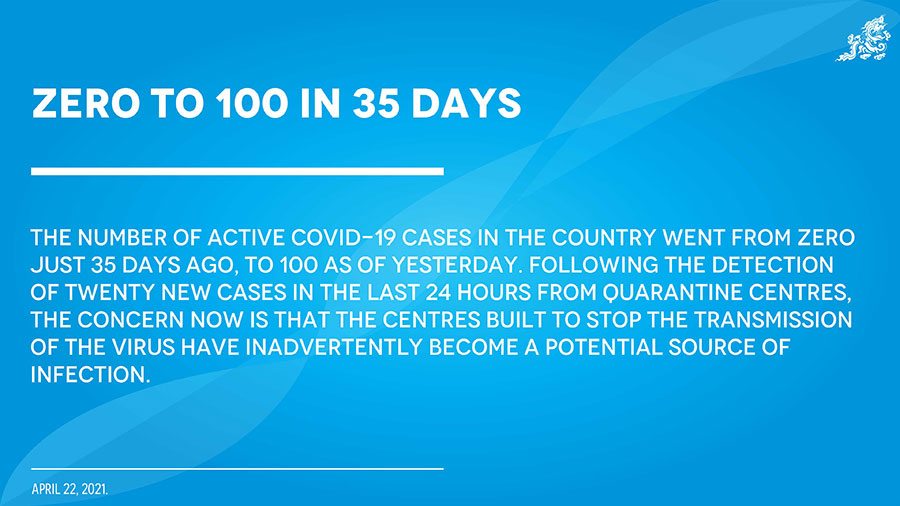Younten Tshedup
Thirty-five days after Bhutan managed to bring its active Covid-19 cases to zero, the country crossed the 100th mark as of yesterday, just 14 cases short of 1,000 cases since March 5, 2020.
Twenty new cases were detected in the last 24 hours including six among contacts of earlier cases in Phuentsholing. Although the cases, for now, are among those who are in the quarantine centres, the daily case detection in the country is on the rise.
Much to the relief of thousands in the capital, the health ministry announced yesterday that all 26 contacts of the positive cases detected in Thimphu on April 20 tested negative. Besides Thimphu, the contacts have also been traced to Paro.
Suspecting an early infection, the health ministry decided to quarantine all the contacts for a few more days until health experts certified them as ‘safe’. This according to many was a good move given that some of the cases in the past, who tested negative earlier have turned positive a few days later.
However, a concern now is that quarantine facilities did not guarantee a full-proof defence against the virus. The centres (quarantine) built to stop the transmission of the virus have now, in a way, become a potential source of the infection.
Despite protocols, regulations are being breached. The cook who tested positive on April 20 had left the quarantine facility on multiple occasions and no one knew about his actions.
A senior government official said that the pandemic has been stretching over one year and the so-called pandemic fatigue was getting the best of the people. “But this is not the time to let our guards down. In fact, we have to be more cautious at this time given the worsening condition in India.”
He said that when a country like India was struggling with the second wave of the pandemic if a fraction of India’s caseload was introduced in Bhutan, all systems would come crashing down.
A doctor at the national referral hospital said that the second outbreak of Covid-19 in December last year was ‘bad’ enough to exploit the health care system of the country.
“If we happen to record 50 to 100 cases daily, our health system cannot handle the situation and within a week we’ll fail and people will die,” he said. “Now that there is evidence of a new strain of the virus being more infectious and lethal, this is no more just a hypothesis. We will suffer if we are not careful.”
Following the lockdown scare on April 20, things returned to normal after the contacts tested negative. People were once again seen strolling the streets in groups, many without face masks. Restaurants and eateries in the capital city were cramped as usual.
“It’s time the government starts imposing curfews. Anyone seen in a group should be interrogated. We have been complacent enough. Let us be responsible now,” said a corporate employee.
He said that besides monitoring the public, the government should also revisit its strategies and protocols and implement them strictly. “People should be held accountable, only then things would work. Otherwise, there is no just fixing the innocent public.
More than a dozen Bhutanese test positive in New Delhi
Meanwhile, more than a dozen Bhutanese employees at the Bhutan Embassy in New Delhi have also tested positive for Covid-19 on April 20.
Sources said that the possible source of infection could be from one of the sweepers at the embassy who had also tested positive a few days ago.
It was learnt that all the positive cases were asymptomatic or had mild symptoms. They are currently self-isolating at their respective homes.
The foreign ministry is awaiting a formal report on the situation.


